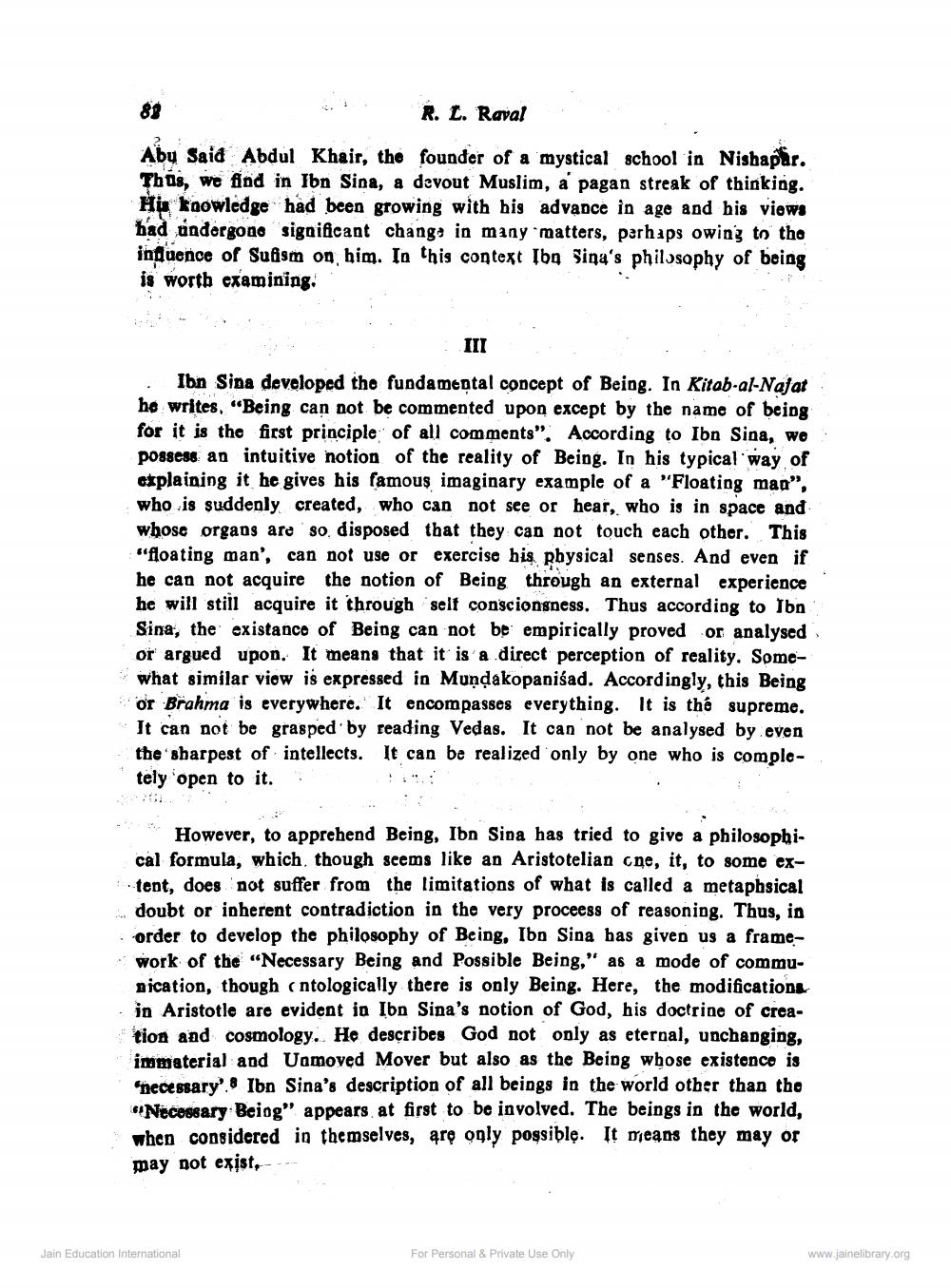________________
R. L. Raval
Abu Said Abdul Khair, the founder of a mystical school in Nishapar. Thus, we find in Ibn Sina, a devout Muslim, a pagan streak of thinking. Hj kaowledge had been growing with his advance in age and his views had undergono significant change in many matters, perhaps owing to the influence of Sufism on him. In this context Ibn Sina's philosophy of being is worth examining.
III
• Ibn Sina developed the fundamental concept of Being. In Kitab-al-Nafat he writes, “Being can not be commented upon except by the name of being for it is the first principle of all comments". According to Ibn Sina, we possess an intuitive notion of the reality of Being. In his typical way of explaining it he gives his famous imaginary example of a "Floating man", who is suddenly created, who can not see or hear, who is in space and whose organs are so disposed that they can not touch each other. This "floating man', can not use or exercise his physical senses. And even if he can not acquire the notion of Being through an external experience he will still acquire it through self conscionsness. Thus according to Ibn Sina, the existance of Being can not be empirically proved or analysed or argued upon. It means that it is a direct perception of reality. Somewhat similar view is expressed in Mundakopanišad. Accordingly, this Being or Brahma is everywhere. It encompasses everything. It is the supreme. It can not be grasped by reading Vedas. It can not be analysed by even the sharpest of intellects. It can be realized only by one who is completely open to it.
" However, to apprehend Being, Ibn Sina has tried to give a philosophical formula, which, though seems like an Aristotelian cne, it, to some extent, does not suffer from the limitations of what is called a metapbsical doubt or inherent contradiction in the very proceess of reasoning. Thus, in order to develop the philosophy of Being, Ibn Sina has given us a framework of the “Necessary Being and Possible Being," as a mode of communication, though ontologically there is only Being. Here, the modifications in Aristotle are evident in Ibn Sina's notion of God, his doctrine of creation and cosmology. He describes God not only as eternal, unchanging, immaterial and Uomoved Mover but also as the Being whose existence is necessary'. Ibn Sina's description of all beings in the world other than the SINecessary Beiog" appears at first to be involved. The beings in the world, when considered in themselves, are only possible. It means they may or may not exist,
Jain Education International
For Personal & Private Use Only
www.jainelibrary.org




